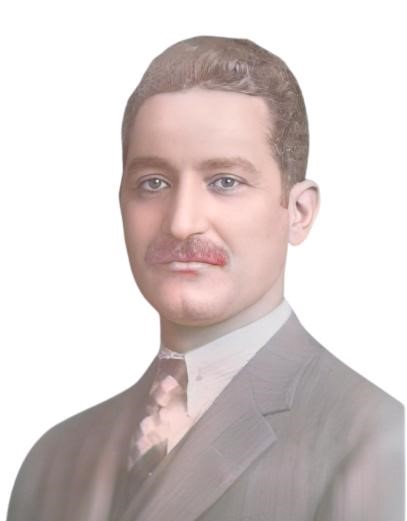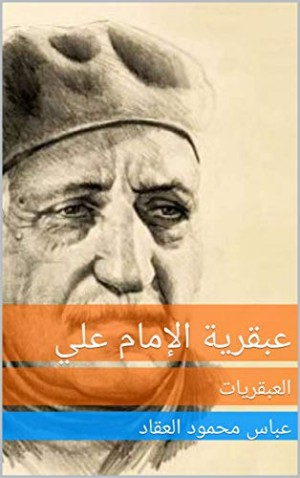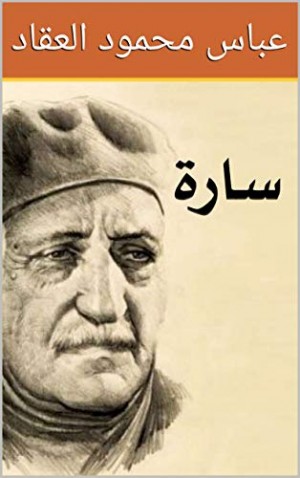Abbas Mahmoud El-Aqqad is one of the giants of the 20th century and a renowned figure in the illumination of human thought. He lived for more than 80 years enriching cultural, social, and political life in Egypt.
He is taken as a unique encyclopedic figure a self-educated, he used to read in different fields of knowledge, and he wrote in various spheres, distinguishing himself as a writer, thinker, poet, historian and journalist.
El-Aqqad launched many contentions, political and cultural for the sake of national freedom and the upgrading of learning, knowledge and the freedom of thought, thus identifying his mental greatness with that of the issues and thoughts he propounded.
The Egyptian writer enriched the Arab Library with 102 books on different topics including history, philosophy, poetry, literature, political, geniuses, biographies and memoirs(autobiographies)-besides translated books from English language. That whole ensemble represent the largest and intellectual heritage in the history of modern Arabic literature, an innovating heritage on which scholars made some 30 to 50 master and doctorate degrees .
El-Aqqad was born on Friday , June 28 1889 to a father, an archivist, in the city of Aswan, Upper Egypt, the same year in which were born many other giants of human thought and notables .
In 1896, he started his first educational lessons in the kuttab(or the pre-elementary educational and which prevailed in Egypt and the orient late 19th and early 20th centuries, teaching children the Holy Quran and Arabic language. They are gradually disappearing leaving place for civil governmental and private schools not excluding -nevertheless religious teachings which occupy a prominent place therein)
By 1899 El-Aqqad joined the elementary school for 4 years, only to undertake a self-education- career, widely reading and exploring all sorts and branches of knowledge, realizing great accomplishments as a tactful interlocutor, a cogent and eloquent person to finally become an example and ideal for Arab intellectuals
In his early years, he assumed different governmental employments in different cities, but he used to frequent Cairo to cope with the literary and acquire modern books. In 1906, he ultimately settled in Cairo, resigning from his governmental posts, to devote himself to journalism and writing.
It was journalism which attracted Aqqad to the realm of writing when he joined the editing staff of "Al-Dostour" in 1907 and "Bayan" in 1911. He also wrote some chapters on criticism in "Okaz" magazine in 1912; he was also dedicated to some Arab biographies. In the domain of Press, Aqqad had a distinctively charismatic character desirous of influencing others to strive for the best. He was the first Egyptian journalist to skillfully introduce the press interview when he interviewed the national leader Saad Zaghloul in 1908.
In this domain, too, El-Aqqad launched many political contentions in defense of democracy in the wider sense of the word; so he frequently attacked Hitler in 1948, refuting the concepts of Nazism. He was imprisoned in 1940 for his defense, in the press, of democracy and parliamentary life, he was then member of The House of Representatives.
A selection of his works are :
- In Poetry : 11 Diwans (collections of poems), the first entitled "Yaqazat al-Sabah" or "The Morning Awakening" in 1916. He is considered as a pioneer innovator in Arabic poetry. According to Aqqad, poetry is a rational feeling which comprehensively interprets emotions, he believed that the poet who can not be identified through his poetry is not worthy of being known, he always stressed the value of the poets individuality.
- In Fiction, he wrote but one story called "Sarah" published in 1938 which related some aspects of the writer’s life himself. Critics illustrated that the style of Aqqad is a top-level and scientific one, and some considered the issues raised thereby as symbolizing the Egyptian conscience - his emotions, morals and knighthood.
- In history and society : 19 books including : Eblees or the Devil in 1958
- In Criticism : 11 books including Introduction to Shakespeare 1958 Poetic language 1958
- Aqqad published a diversified Translations of world poetry and stories such as "Types of short stories from American literature"
- "The Diary Resume" 1921 "The Diaries"1963
- In Philosophy Aqqad did not confine himself to the philosophic method as to search for the truth, and, in spite of the fact that he had studied the philosophic doctrines, yet he strove not to be dominated by any specific one, because he had his own philosophy which depends on the reason, senses and spiritual consciousness, all in an integrated pattern which he called the Universal Consciousness. In 1916, Good and Evil. The most prominent in this group : In 1947 Allah or "God"
- In Politics : 9 books including : " Nazism and Religions" "Hitler in the Balance"
- As from 1942, Aqqad wrote a marvelous collection of The Geniuses such as the genius of Mohamed the Prophet (God’s blessing and peace up on him )that of the four orthodox Caliphs, and Jesus Christ, to be followed by a series of religious researches which revealed Aqqad’s clear and profound belief based on a rational comprehension of the fundamentals of religion.Those were 14 books including : "The Genius of the Prophet Mohammed" "The Genius of the Jesus Christ" In Islamics : "The Arab Impact on European Civilization 1942" "Thought on Islamic Duty"
- Biographies : 15 books including : Saad Zaghloul 1936 (The national Egyptian leader in the early 20th century-1857-1927) Ibn Rushd (or Averroes, the Andalusian Arab philosopher -1126-1198) Benjamin Franklin(the American politician and scientist in the field of electricity-1706-1790) Al Faraby 1944 Francis Beckon 1945 Benjamin Franklin 1959. In his biographies, Aqqad succeeded in presenting diversified types of personal greatness in different aspects of culture such as poetry, philosophy, music, policy…etc, He focused on the reasons behind greatness, penetrating to the inner most of each personality in search for "the key "of its greatness.






